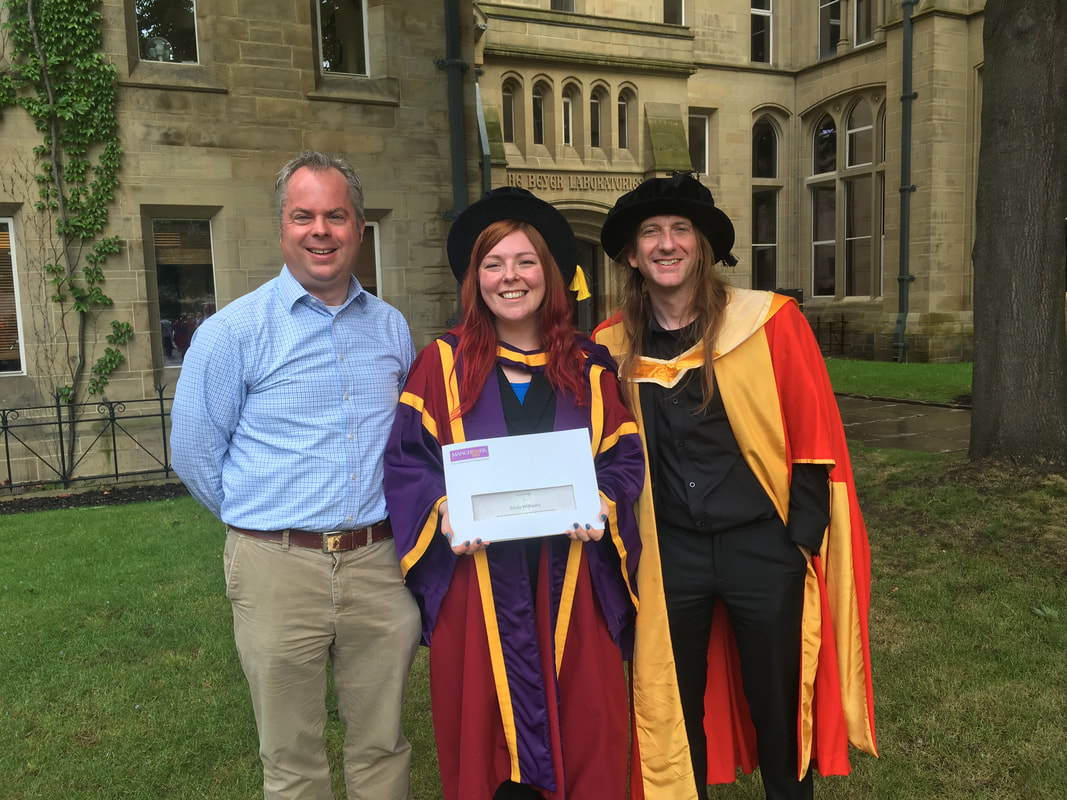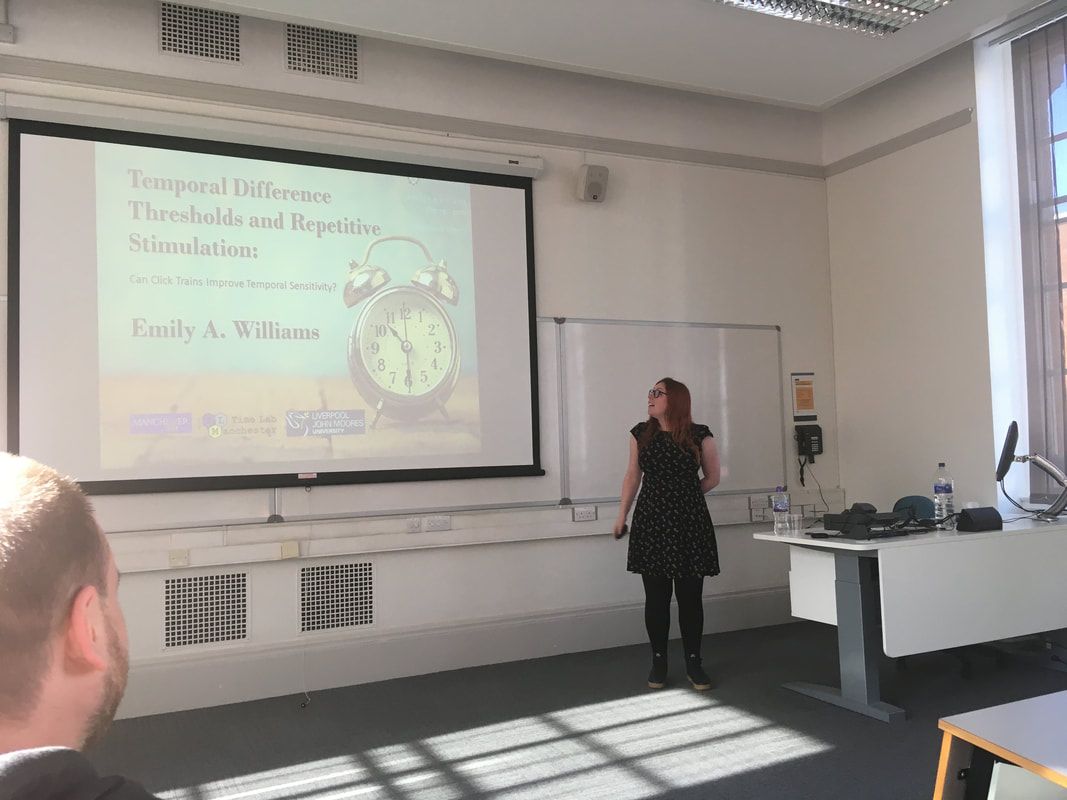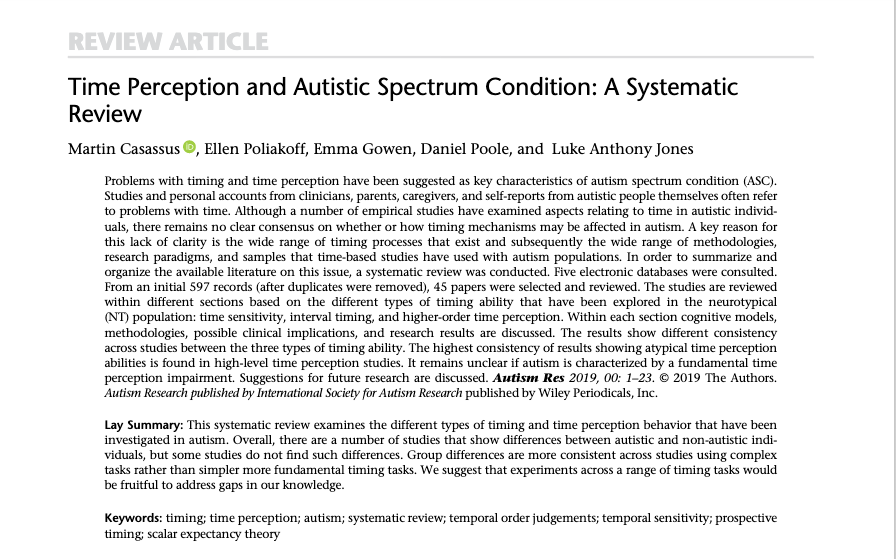|
The second semester of 2019 turned out to be a hectic one, and we haven't updated our news on here for a while, so here's a catch up of a few things. In February our PhD student Emily Williams passed her viva voca and became Dr Emily Williams. Emily's graduation was in July and it was a lovely day, the photo below shows Emily with her two supervisors Dr Luke Jones (me) and Dr Andrew Stewart. It was a really proud day, but also tinged with sadness, Emily as been such a major force not only in our lab but in our school, and it has been a five year journey from supervising her 3rd year undergraduate project, master's dissertation (MRes), through to the challenges of securing her PhD funding. We are still working on papers together, and Emily will always be part of our lab. Thanks for everything Emily, you made the University a better place to work in. In April the University of Manchester hosted the spring meeting of the Experimental Psychology Society. Our lab was well represented with Emily giving her first EPS oral presentation (on our work on temporal difference thresholds and repetitive stimulation) and also a poster (on repetitive stimulation and physiological arousal). In non-Emily news... the first paper from our 3 year ESRC funded project on timing and autism is now out. This paper like the project is a collaboration between the time lab and autism research at Manchester, and it also forms part of the thesis of our PhD student Martin Casassus. The paper is a systematic review of timing studies in autism, a link to the online (open access) version of the paper is HERE. The main takeaway message is that although problems with 'time' are commonly reported by people with autism (or their friends and family), exactly what kind of timing this relates to is unclear, and in the literature any significant deficits in fundamental stimulus timing have yet to be proven, the evidence for deficits in more complex timing tasks is somewhat stronger. Addressing these issues is the purpose of our ESRC project, and we will have empirical papers on this coming out over the next year. Now the summer is here our main activities are paper writing, but we will soon have the first batch of data from our large scale study of performance on various timing taks by people with autism, which is very exciting! Our planned analyses have all been pre-registered and we are aiming for a gold standard in open science practices relating to this (and all) outputs from our lab.
Lastly we end on a rather sad note, recently Dr Don O'Boyle passed away from a long illness. Don was a lecturer in the psychology department here up until 2003, he had a keen interest in timing research (especially in relation to Parkinson's Disease) and was a co-supervisor of my (Luke Jones) PhD. Don was a true scientist, scholar and a generous mentor. Don showed me a lot of kindness and patience when I first came to Manchester and had not a clue what I was doing! Rest in peace Don, our love goes out to his friends and family.
1 Comment
11/3/2023 06:29:30
I wanted to express my gratitude for your insightful and engaging article. Your writing is clear and easy to follow, and I appreciated the way you presented your ideas in a thoughtful and organized manner. Your analysis was both thought-provoking and well-researched, and I enjoyed the real-life examples you used to illustrate your points. Your article has provided me with a fresh perspective on the subject matter and has inspired me to think more deeply about this topic.
Reply
Leave a Reply. |
Who We are
The Time Perception lab is located in the University of Manchester. For more details see our 'About' page. Archives
May 2023
|



 RSS Feed
RSS Feed
